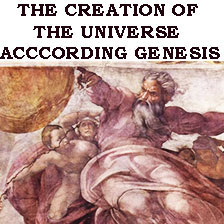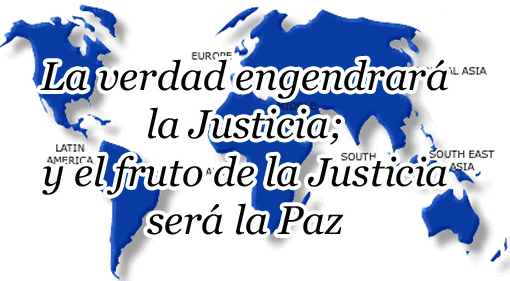
READING HALL THE DOORS OF WISDOM

 |
READING HALL THE DOORS OF WISDOM |
 |
 |
 |
 |
MACEDON
401—301
B.C.
We can see the hand of God at work from century to century but in this case, talking about Alexander the Macedon, or the Great, the work of God is clear as a spring sunny day. The proffesional historians of all times and nations used to see the effect of the fall of the empire of Persia as a gain for the Civilization of the human race; and they are right. The Spirit Saint in the Fathers of the Church said it many times. The Clasical World was the main road leading Civilization on Earth to the Birth of Christianity. My point is this, fascinated by the gesta of that young man, in his twenties conquering armies and kingdoms, as a force of Nature against whose power there was no medecin, had that young man did not leave the world once his work was done, the Civilization as an entity would have been dragged down into the world from which Athens was fighting to get free. That young man had by teacher a philosopher to whom slavery was legal and Nature itself was its source. Contraryly to the Philosophy of PLato and Socrates to whom Freedom is the Mother of Mankind, Aristotle incepted in the mind of his pupil, Alexander the Macedon, the theory of Slavery as a reality backed up by the Universe. This is to say, Macedon pushed away from the throne of the world the Persian Monarch just to sit himself as the new God and Master of the World. God could not allow Alexander such a set back. Alexander's death was a Need that could not be avoided. Alexander had to die. Alexander was called to do the work of the Fall of the Persian Empire. Once done, his remaining in the world would have dragged down the Civilization many centuries back. His deification would have taken the Persian Monarchy to its goal : the Military Theocracy. The Mede out, the Macedon in: he would have taken his place. God could not allow such a set back. Civilization is God's Work. We see this, in a Divine Way, when the Son of God came to us: to be the Champion of the Civilization. Can be God judged because...? MY Answer is final: The Power of the Creator of the Universe is absolute. We all have a part in His Work. To see this part is to reach Wisdom and walk the Path of Life. Alexander did not read the Script that was written for him to live. Once Jesus Christ came we must to open our eyes and search in God our part in the play of this Century.
TABLE OF
CONTENTS
CHAPTER I
I. Xerxes
and his successors Artaxerxes I and Darius II
CHAPTER II
I. Lysander's Settlement . II. Spartan
home affairs
CHAPTER III
I. General condition of Greece in 386 B.C. .II. Sparta’s policy of precautions . III. The rise of Thebes . IV. The new Athenian thalassocracy .V. Jason of Pherae
CHAPTER IV
I. The battle of Leuctra . II. Theban ascendancy in northern Greece . III. The disruption of the Peloponnesian League . IV. The diplomatic failures of Thebes . V. The failure of Arcadian imperialism . VI. The battle of Mantinea . VII. The decline of the Athenian naval league
CHAPTER V
I. Carthaginian invasions, 409-406 BC . II. Rise of Dionysius, 405 BC . III. Dionysius and the Sicels, 403 BC . IV. First war with Carthage, 398-392 BC . V. The Italian wars of Dionysius and his later wars with Carthage . VI. Relations of Dionysius with eastern Greece . VII. Death of Dionysius, 367 BC . VIII. Estimate of Dionysius
CHAPTER VI
I. The Achaemenid rule . II. The last native monarchy . III. The coming of Alexander
CHAPTER VII
I. The historical outlines.II. The Jews and their neighbours.III. Edom and Samaria.IV. Religious tendencies.V. The priestly source (‘P’) and the Pentateuch.-APPENDIX: The Elephantine papyri
CHAPTER VIII
I. The Greek world at the accession of Philip Difficulties of Athens abroad . II. The early years of Philip’s reign, 359-356 . III. The war of Athens and her allies, 357-355 . IV. The sacred war down to 353 . V. Philip’s activities in Thrace and Thessaly down sacred war continued . VI. Philip in Thrace . VII. The sacred war continued, 352-347 . VIII. The Olynthian war The first Philippic . IX. The peace of Philocrates, and the end of Deposition of Phalaecus
CHAPTER IX
I. Years of nominal peace between Philip and Athens, 346-343 . II. The relations of Philip and the Greek cities with Persia . III. The struggle in Thrace and the Chersonese, 342-339 . IV. The Amphissean war: Chaeronea (338 ) . V. After Chaeronea .VI. The death of Philip. Characters of Philip and Demosthenes
CHAPTER X
I. Dionysius the second . II. The enterprise of Dion . III. Timoleon: the delivery of Syracuse . IV. Timoleon: the settlement of Sicily . V. Southern Italy
CHAPTER XI
I. The philosophy of Socrates . II. Plato : the early dialogues . III. The Academy: Dialogues of the Middle Period . IV. The Later Dialogues . V. Aristotle . VI. Form and matter, the actual and the potential . VII. The Objects and methods of Science . IX. Biology and psychology . X. Ethics and politics
CHAPTER XII
I. Alexander’s early years . II. The preparations for invading Persia . III. Granicus and Asia Minor . IV. The battle of Issus . V. The administration of Asia Minor . VI. Tyre and Egypt . VII. The battle of Gaugamela . VIII. The death of Darius
CHAPTER XIII
I. Alexander, Philotas, and Parmenion . II. The conquest of Turkestan . III. Cleitus, Callisthenes, and Alexander’s divine descent . IV. India: from Bactria to the Jhelum Existing knowledge of India . V. India: from the Jhelum to the Beas Defeat Alexander’s of Porus army mutinies . VI. India: from the Beas to Patala . VII. Gedrosia and Susa . VIII. Alexander’s deification and death . IX. Alexander’s character and policy . X. Finance and the new cities . XI. The empire: Alexander’s personality
CHAPTER XIV
I. The feeling in Greece . II. Lycurgus and Athens . III. Agis III of Sparta Agis and Antipater . IV. The prosecution of Demosthenes . V. The affair of Harpalus Harpalus: Alexander’s deification . VI. The Lamian war Leosthenes
CHAPTER XV
I. The question of the succession . II. Perdiccas . III. Antipater’s regency . IV. Polyperchon and Greece . V. Eumenes and Antigonus . VI. Cassander and the coalition . VII. Antigonus’ first struggle for the empire . VIII. Antigonus’ kingdom . IX. Cassander and Ptolemy . X. Antigonus’ second struggle for the empire . XI. Defeat and death of Antigonus
CHAPTER XVI
By Ernest Barker I. The political thought of the fourth century . II. The political theory of the fourth century . III. Xenophon and Isocrates . IV. Plato The and Panegyricus Aristotle . V. The end of the Polls, and its political theory
CHAPTER XVII
I. Classical sculpture: (II) the fourth century . II. Classical painting: (II) the fourth century . III. Fourth-century Doric architecture . IV. The Corinthian capital . V. Ionic architecture in Asia . VI. Civil Buildings
NICE READING (PDF)
Freeman, E. A. History of Sicily Greece to the reign of Peisistratus at Athens v 10 Greece to the reign of Peisistratus at Athens v 11 Greece to the reign of Peisistratus at Athens v 12 Rostoftzeff, M. A
History of the Ancient World. Vol. 1. The Orient and Greece.
Halliday, W. R. The Growth of the City State Zimmern, A.
E. The Greek Commonwealth.
Spykes, Sir P. M. A history of Persia. Vol. 1 Marshall, F.
H. The Second Athenian Confederacy
Bonner, R. J.
The Boeotian Federal Constitution
Burnet, J.
Greek Philosophy. Vol. 1. Thales to Plato.
Gomperz, T., Greek thinkers : a history of ancient philosophy Hogarth, D. G. Philip and Alexander of Macedon Mahaffy, J.
P. Greek life and thought from the death of Alexander to the Roman conquest.
Bouche-Leclerq, A. Histoire des Lagides-1-Les cinq premiers Ptolémées (323-181 avant J.-C.)
|
 |
 |
 |
 |
 |